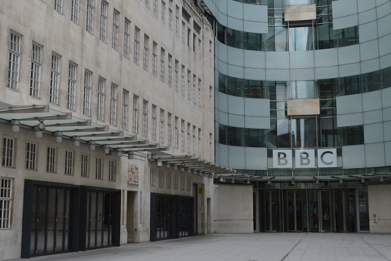The British regulator Ofcom wants to “raise the bar on performance” of the BBC with a series of resolutions that will affect the company’s content, quotas and diversity.
Back in March, the Office of Communications (Ofcom), the UK’s communications regulator, published proposals on how to asses the BBC’s performance and ensure that it fulfills its role as a public broadcaster. The Public Media Alliance took part in this consultation, proposing to track the BBC’s international coverage on an annual basis to ensure it has adequate space.
On Friday, the Ofcom published its first BBC operating licence, and with it came new requirements. These focus mostly on content but also on how the BBC reflects the population’s diversity across its programmes and newsrooms.
“The BBC is the cornerstone of UK broadcasting. But we think it can do more to provide quality, distinctive programmes that reflect the interests and lives of people across the UK,” said Kevin Bakhurst, Ofcom Content and Media Policy Director. “Our rules will ensure the BBC focuses on original UK content, and invests in vital areas such as children’s programming, music, arts and religion.”
More original content
At least 75% of content will have to be made in the UK, including 90% of peak time content. Radio 1 and Radio 2 will be required to play a wider range of music compared to commercial stations and encourage more music from emerging UK artists. The new operating licence also increases the quotas for news and current affairs both for radio and TV. These will also need to give more space to “vulnerable genres” like arts, music and religious programmes.
In addition, BBC Radio will be required to support social action campaigns and provide a platform in which citizens, especially younger people, can engage with social issues.
Half of the network hours on TV channels will have to be made outside of London and each UK nation will have separate minimum quotas, according to their population size. The BBC will thus be required to spend roughly the same amount on programmes in all four nations across the UK.
More diversity
The regulator also called for the broadcaster to reflect the diversity of the UK, especially in light of a report published a month ago. This study found that broadcasters across the UK needed to improve diversity on and off screen. The report shows that women and ethnic minority employees are under-represented, especially at senior level, and disabled employees are even more neglected.
The new regulation thus sets new requirements for the broadcaster, to make sure “the BBC is publicly accountable for achieving its workforce diversity targets.” 15% of staff will have to be from ethnic minority groups, and 50% of staff and leadership roles will have to be held by women by 2020. The broadcaster will have to report yearly on the progress made towards achieving these targets for all its UK public services, which exclude the BBC World Service and its commercial services.
“These are a tough and challenging set of requirements which rightly demand a distinctive BBC which serves and represents all audiences throughout the whole UK,” said the BBC. “We will now get on with meeting these requirements and continuing to provide the world-class, creative BBC the public wants.”
The operating licence, which is the first since Ofcom became the BBC’s external regulator in April, will come into effect on 1 January 2018. The measures related to finance, such as the quota for arts and music programmes, will come into effect on 1 April 2018.
Header image: BBC Office, Portland Place, London. Credits: Matt Brown/Creative Commons
Related Posts
18th July 2017
PMA proposes counts for BBC’s international factual programmes
As part of an Ofcom consultation,…
